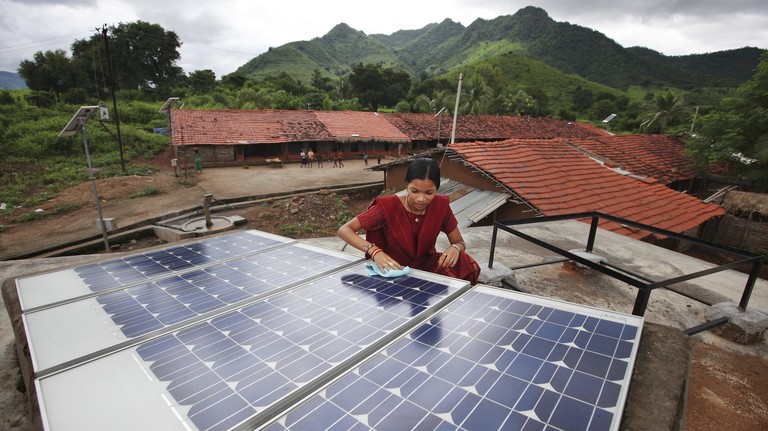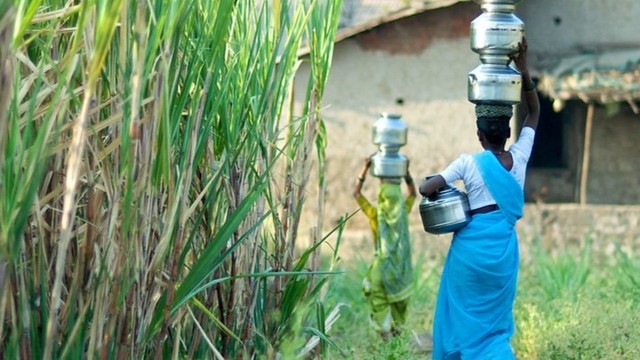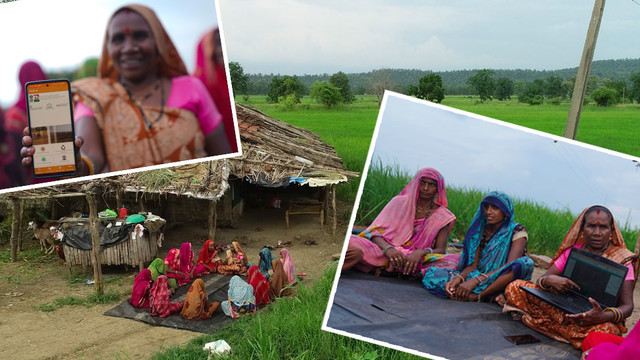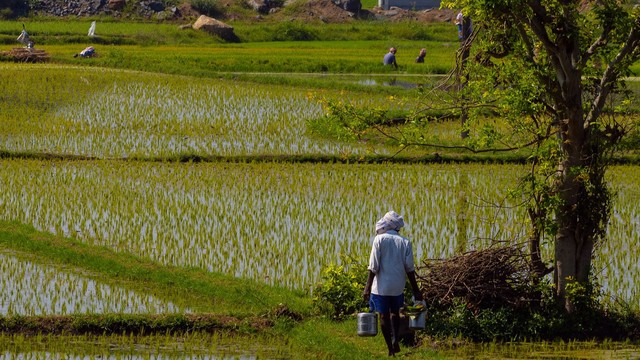Experience sharing on long-term strategies (LTS) in least developed countries
IIED hosted a webinar to explore the experiences of least developed countries as they develop their long-term strategies to address climate change. The event showcased the opportunities coming out of the process and provided a space to discuss challenges and concerns among participants.

As LDCs work on their long-term strategies, climate experts shared their country-specific experiences from India, The Gambia, Mozambique and Anglophone Africa (Photo: copyright Abbie Trayler-Smith/DFID via Flickr, CC BY-NC-ND 2.0)
The Paris Agreement invites countries to formulate and communicate ‘long-term low greenhouse gas emissions development strategies’ (LTS) and to do so by 2020. The Paris Agreement is flexible on what the LTS should look like, so countries must determine what suits them best in terms of both content and process.
For the world’s least developed countries (LDCs), the proportion of global greenhouse gases they emit is negligible, so their LTS will likely be different to those of industrialised, wealthier countries.
Whereas most long-term strategies submitted so far are directed towards decarbonising the economy, LDCs are not solely focusing their strategies on mitigation activities, but just as prominently on enhancing adaptive capacity, strengthening resilience and reducing vulnerability. As LDCs strive to achieve development priorities, long-term strategies can provide the framework for doing so sustainably over decades to come.
Even more, in the rapidly changing context of the global coronavirus pandemic, the LTS can serve as a guide to development pathways post-COVID-19 that are resilient, sustainable and just.
This webinar was the second in a series focusing on LDCs and the Paris Agreement: moving from international commitments to national implementation, and shared the experiences of LDCs in the process of developing their LTS.
Not only this showcased the unique opportunities to be reaped in the process, but facilitated dialogue on common challenges and concerns. LDC practitioners who are leading their country’s LTS work shared lessons learned and key success factors so far. They also shared context-specific motivations for undergoing this voluntary international commitment.
Event coverage
You can see a video recording of the complete event below, including the question-and-answer session with webinar participants, and on IIED's YouTube channel.
About the speakers
Bubucar Z Jallow is the principal climate change officer for the Ministry of Environment, Climate Change and Natural Resources in The Gambia. He also coordinates the development of the country strategic framework on climate change for the Green Climate Fund under its readiness programme.
Margaret Barihaihi is the regional manager for Anglophone Africa within the NDC Partnership Support Unit under the UNFCCC Secretariat. She supports Anglophone Africa countries and Mozambique to access technical and financial resources to achieve their national targets towards implementing the Paris Agreement.
Siddharth Pathak is the director of partnerships at the 2050 Pathways Platform. He has more than a decade of experience working on issues related to climate change and sustainability. Formerly head of political advocacy at CAN International, his experience has taken him from installing renewable energy in remote villages of India to advocating and influencing global negotiations on climate change within the UNFCCC.
Tshering Yangzom is the senior environment officer with the climate change division of the National Environment Commission Secretariat of Bhutan.
Gabrielle Swaby (moderator) is a researcher in IIED's Climate Change research group. Gabrielle has a strong background in international climate politics and the UN climate negotiations, as well as climate diplomacy. She's currently supporting the Least Developed Countries Group in the UNFCCC negotiations and with long-term strategy research.
IIED events newsletter
Sign up to our mailing list for updates and invitations to events throughout the year, including webinars, critical themes and debriefs.
Contact
Elaine Harty (elaine.harty@iied.org), senior coordinator, IIED's Climate Change research group



